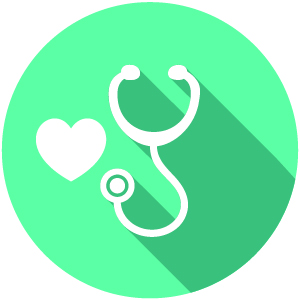Student Health Services are available to all currently registered students during regularly scheduled instructional days.

SCHEDULE AN APPOINTMENT
- Submit this form to contact us, or
- Call the Student Health Services: (415) 485-9458, or
- Send an email to studenthealth@marin.edu

IN-PERSON VISIT
*No drop-in appointments for Summer Semester*
Drop-in appointments available:
Monday — Thursday
9 am — 1 pm
To schedule an appointment outside of drop-in hours, submit the contact form.

TELEHEALTH
Available on regularly scheduled class days:
Monday – Thursday, 9 am — 4 pm
Fridays, 9 am — noon
If you are unable to connect due to high volume use or when we are closed, you can also submit this form to contact us.
If you are requesting a TB risk assessment, please complete the contact form and the nurse practitioner will schedule an appointment with you.
If you are experiencing an emergency call 911
Resources
- Marin County Health and Human Services
- California Department of Public Health
- Centers for Disease Control and Prevention
- World Health Organization
- Community Resource Guide (PDF)
Vaccines are not just for kids! All adults should have:
Influenza (flu) Vaccine Every Year
The Centers for Disease Control (CDC) recommends a yearly flu vaccine for everyone 6 months of age and older as the first and most important step in protecting against this serious disease. Getting the flu vaccine as soon as it becomes available each year is always a good idea, and the protection you get from vaccination will last throughout the flu season. Although fall is the best time to get it, the vaccine usually continues to be available through early spring.
Td or Tdap Vaccine
Every adult should get the current Tdap vaccine once if they did not receive it as an adolescent to protect against pertussis (whooping cough), and then a Td (tetanus, diphtheria) booster shot every 10 years. In addition, women should get the Tdap vaccine each time they are pregnant, preferably at 27 through 36 weeks.
Other vaccines you may need as an adult are determined by factors such as:
- Age
- Lifestyle
- Health conditions
- Job
- International travel
- Any previous vaccines you have received
Tips for Preventing Illness from the Flu
- Get vaccinated
- Avoid close contact with people who are sick.
- Stay home when you are sick. FLU-LIKE SYMPTOMS INCLUDE a fever cough sore throat runny or stuffy nose, body aches, headache, chills, and fatigue. Contact your instructors to let them know you are ill.
- Cover your mouth and nose when coughing and sneezing. Avoid coughing and sneezing into your palms.
- Washing your hands frequently will help protect you from germs. If soap and water are not available, use hand sanitizers. College of Marin has Sani-Hands all over campus to help prevent the spread of germs.
- Avoid touching your eyes, nose, and mouth. Hands touch surfaces that may be contaminated with germs thus spreading these germs.
Get Yourself Tested (GYT) and Sexually Transmitted Disease (STD) Awareness
1 in 2 sexually active young people will get an STD by age 25, most will not know it. If you are sexually active, getting tested for STDs is one of the most important things you can do to protect your health. There are many clinics that provide confidential and free or low-cost testing.
- Novato Teen Clinic
- Marin Community Clinics — STI Clinic
- Planned Parenthood
- Huckleberry Youth Services
CDC Screening Recommendations
- All adults and adolescents from ages 13 to 64 should be tested at least once for HIV.
- Annual chlamydia and gonorrhea screening of all sexually active women younger than 25 years, as well as older women with risk factors such as new or multiple sex partners, or a sex partner who has a sexually transmitted infection.
- Syphilis, HIV, chlamydia, and hepatitis B screening for all pregnant women, and gonorrhea screening for at-risk pregnant women starting early in pregnancy, with repeat testing as needed, to protect the health of mothers and their infants.
- Screening at least once a year for syphilis, chlamydia, and gonorrhea for all sexually active gay, bisexual, and other men who have sex with men (MSM). MSM who have multiple or anonymous partners should be screened more frequently for STDs (i.e., at 3-to-6 month intervals).
- Anyone who has unsafe sex or shares injection drug equipment should get tested for HIV at least once a year. Sexually active gay and bisexual men may benefit from more frequent testing (e.g., every 3 to 6 months).
In an Emergency
If you are experiencing a life-threatening emergency call 911; in an urgent situation, please call ext. 7696 from any campus phone or (415) 485-9696 from your cellular phone for the campus police. To reach the nurse dial 7458 from any campus phone or (415) 485-9458.
The Student Health Center is not open on weekends or holidays. There is no on-call service available. Services are available when classes are in session to currently enrolled students on weekdays.
